Q: I am about to take a lease listing. I was notified by the representative for a Natural Hazards Disclosure company that the Owner must disclose if the Property is in a flood zone and, that to handle all of the new disclosure requirements, we need to obtain and pay a fee for a special report to be given to tenants to cover this disclosure requirement. What exactly does an Owner need to disclose about flood zones and is there a requirement for Owners to provide a NHDS or similar report to Tenants?
BOTTOM LINE: There is NO legal requirement for an Owner of rental property (or an Owner’s agent) to pay for and obtain a NHD, or any type of similar tenant report, to be able to rent property; nor is it necessary to do so because there is a C.A.R. form which provides the required disclosures to tenants.
A: All residential lease/rental agreements that are entered into on or after July 1, 2018 are subject to a new flood hazard disclosure law. California Government Code Section 8589.45 provides that Owners (or the Owner’s agent who is listing the Property for rent) must disclose three (3) specific pieces of information to a Tenant, in text no smaller than eight-point type:
- If the Owner or the Owner’s agent has “actual knowledge” that the Property is located in a special flood hazard area or an area of potential flooding, then that knowledge must be disclosed to the Tenant. The key is whether or not the Owner or Owner’s agent has actual knowledge of that fact. If an Owner has received written notice from any public agency stating that their Property is in a flood zone or when the Owner carries flood insurance, the Owner is legally deemed to have actual knowledge that the Property is in a special flood hazard area or an area of potential flooding.
NOTE: Every NHD report from every NHD company contains a disclosure as to whether or not the Property is in one of two designated flood hazards zones. If the Owner has already obtained an NHD report as part of the Owner’s acquisition of the Property, that documentation would also give the Owner and/or the Owner’s agent actual knowledge about this topic; if the Owner has “actual knowledge” that the Property is in a designated flood hazard zone, then that information must be disclosed to the Tenant.
Regardless of how the Owner or the Owner’s agent has obtained their “actual knowledge” of the flood hazard zone designation, that information should be disclosed in the new C.A.R. Tenant Flood Hazards Disclosure form (form TFHD on zipForms).
- Statutorily-prescribed information regarding flood hazards, specifically including, but not limited to, the availability of information on the website of the Office of Emergency Services.
NOTE: The new C.A.R. Tenant Flood Hazard Disclosure form (form TFHD on zipForms) includes the statutorily-required information and thus fully takes care of this obligation.
- The Owner’s disclosure to the Tenant must also include:
(a) the Internet website address for the MyHazards tool maintained by the Office of Emergency Services;
(b) that the Owner’s insurance does not cover the loss of the Tenant’s personal possessions, and it is recommended that the Tenant consider purchasing renter’s insurance and flood insurance to insure his or her possessions from loss due to fire, flood, or other risk of loss; and
(c) that the Owner is not required to provide additional information concerning the flood hazards to the property and that the information provided pursuant to this section is deemed adequate to inform the tenant.
NOTE: All of this statutorily-required information is appropriately covered in the C.A.R., Tenant Flood Hazard Disclosure form (form TFHD on zipForms). Thus, as a matter of law, no additional documentation, such as an NHD report, needs to be provided to the Tenant.
PRACTICE TIPS:
- When taking a Lease Listing make certain that the Owner is provided with a copy of the TFHD form and warn the Owner that the TFHD form is used in all rentals that commence on or after July 1, 2018.
- Encourage Owners to check their records to determine if they have: a NHDS report that specifies the Property is in a designated flood zone, and/or a Notice from a governmental agency, and/or are required to carry flood insurance since that documentation will establish whether or not the Owner has “actual knowledge” of a flood zone designation.
- If the Owner does not have any documentation but the Listing Agent has a pre-existing NHDS report (e.g., when the Listing Agent helped the Owner buy the Property), then that document should be provided to the Owner. The Listing Agent’s knowledge is legally imputed to the Owner whether or not the agent’s copy of the NHDS report is provided to the Owner; thus, the better practice is to provide it to the Owner so that the Owner can truthfully respond on the TFHD form.
- Advise the Owner that IF the Owner has “actual knowledge” (based upon any of the documentation discussed above) that the Property is in a designated flood zone, then the Owner must disclose that fact by checking the box in Section 1 of the TFHD form.
- Use current Lease and Month-to-Month forms that include a reference to the Tenant Flood Hazard Disclosure.
- Use the TFHD regardless of whether the Owner checks the Box in Section 1 of the form which denotes whether the Property is in a special flood hazard area or in an area of potential flooding.
DO NOT FORWARD TO CLIENTS. This Weekly Practice Tip is for the exclusive use of clients of Broker Risk Management and their agents. It may not be reproduced or distributed without the express written consent of Broker Risk Management. The advice and recommendations contained herein are not necessarily indicative of standards of care in the industry, but rather are intended to suggest good risk management practices.
© Copyright Broker Risk Management 2018 07/06/18
